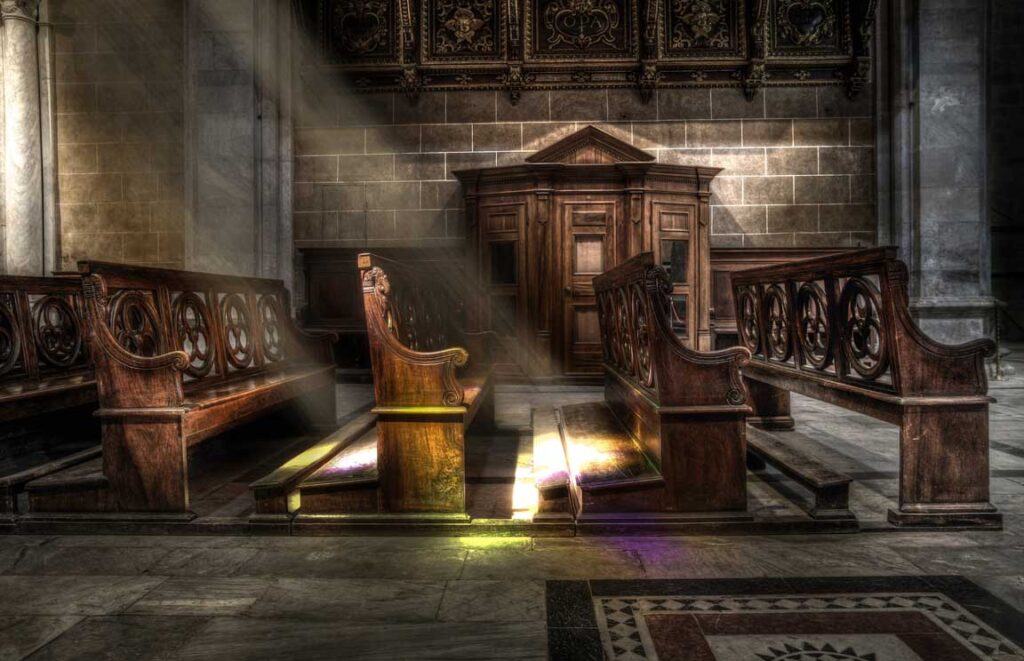The Albatross: or Modern Cultural Bias in History
To make my videos for Defragged History, I do a lot of research. I read as many books and articles from all the centuries and many different cultures and perspectives as possible. I want to form as complete a picture as possible.
While reading, I noticed a pattern: many authors write about ancient people as though they were modern people. In fact, reading books from different centuries makes various authors’ cultural biases even more evident.
Books written over the last 15-20 years tend to be a lot more nuanced and less dramatic in their assessments of events that took place hundreds of years ago. But still, I was stunned to see how many modern authors haven’t learned more about the prevailing culture of the era they are writing about.
Religious Nut
For me, the worst authors fail to consider the importance that religion played in these people’s lives. When reading books about medieval people, I can always tell when an author has not had a religious upbringing and isn’t currently religious.

These rational authors tend to poo-poo away deeply held religious zeal and think everyone was full of it and that there were never true believers anyway.
They can’t seem to grasp people’s absolute faith in a force greater than themselves. They fail to account for their reliance on a God who judges their actions both in this life and the next, and how this knowledge influenced their decisions, from Kings and Queens down to the peasants.
Back in the day, people certainly skirted the very edges of sin, but they absolutely believed in an all-Powerful, all-Seeing Deity. The two were – and are not – mutually exclusive, and one only needs to look at today’s Christians to see it happen in real-time.
Act Normal
Naturally, everyone has a bias, and no one can escape it. The fact that I’m a woman shapes the stories I tell. Add to that white, upper-middle-class, North-West European, of a certain age, and raised Calvinist though not religious anymore. I have a lot of preconceptions when I begin writing, but I know I do, so I challenge all my assumptions.
My stories focus on people’s motives, not so much on events, and this is probably my female bias. I’m always curious when I study ancient people to find out if their behavior was the norm. Or whether they were behaving in a way that clashed with the culture of the time.
And so, I spend a lot of time looking for answers and weave them into my stories.
Cross-Cultural Trainer
I spent over 20 years as a cross-cultural trainer for an intercultural exchange organization teaching young people to understand and handle cultural differences.
We took high schoolers abroad to live with host families for two weeks. We prepared them for a potentially unsettling experience by teaching them about their own cultural biases and how it affects their judgment of others.
We never wanted to change who they were, but to become aware that other cultures have different ‘rules,’ and that these rules don’t always make sense. But that this never means the ‘other’s’ rules, or their own for that matter, are wrong.
By teaching them coping skills – for instance, to recognize their instant judgment – we hoped to reduce the chance of culture shock. It worked.

Our team developed an extensive lesson program that, among other things, used various games to confront high schoolers with their own cultural bias in real-time but in a safe environment before they went ‘out in the field.’
There was the scissor game, in which students passed around a pair of scissors in the open, crossed, or closed position. The student had to say in what position they received the scissors and in what position they passed them on. A student would receive the scissor closed and said: I received it closed. This was then deemed correct or incorrect by me.
The frustration would build as they were told repeatedly they did it wrong, and even more so when they got it right by accident. The teens couldn’t figure out ‘the rule’ or felt the rule was wrong. But gradually, most people started figuring out the trick. Those who couldn’t figure it out became more frustrated, even with the hints becoming ever more obvious.
The trick? The position of the scissors ‘legs’ never mattered. One had to mention the position of legs of the person who passed on the scissors as being open, crossed, or closed.
Albatross
My favorite game, however, was the Albatross. You could see minds being blown every single time, and it was the best way to quickly show how cultural bias works.
The class is told they are anthropologists who are receiving a visit from an exotic foreign culture called the Albatross People performing an elaborate dining ritual. They had to carefully observe, participate, and report all their findings afterward.
But before the curious-looking couple entered, all the women in the group were told to take off their shoes and kneel on the floor, and the men remained on their chairs with their shoes on.
The couple entered. The Male sat on a chair with his shoes on, and the Female sat on the floor without shoes.
Well, Hello There!

After a greeting ceremony, the Female picked up a tray of (funny tasting) food and fed the Male first, and then went around to feed all the men in the group.
The men weren’t allowed to pick up the food themselves. They had to open their mouth, and the Female would put the food in it. When the Male companion indicated that the food tasted good, the Female went around to the women. They, however, had to pick up the food themselves and weren’t fed. The drink was passed around in the same way. Men couldn’t touch the glass, but women had to pick it up themselves.
The Female returned to kneel at the Male’s side, who then gently pushed her head down to face the floor.
By this point, the classroom was filled with exclamations of protest, harrumphs, and even anger at the behavior of these two Albatrossians. The ‘anthropologists’ were furious at this apparent misogynistic culture.
We had to tell them to hush and observe!
In the farewell ceremony, the Female selected the woman in the group with the biggest feet to join the couple as they left.
What’s Happening?
We’d ask the group to describe the culture.
First, the students had to describe all the events and then the big question: what is the position of the Female in this culture?
Everyone and I mean everyone, always, and I mean always, said that the women in this culture were obviously oppressed and that the men were treated like Kings. The women were barefoot, unseated, kneeling, unpampered, fed and lathed last, and forced to look down to the floor.
Upside Down
Then came the fun part.
What if I told you that in this culture, the earth is considered sacred, producing food and water, sustaining the life of the Albatross people? The earth is, in fact, so holy that only women are allowed to touch it. Women also ‘bear fruit’ and are therefore one with the earth.

Men must have a barrier between their unholy feet and the floor at all times, and must always remain elevated on a chair, away from the earth. A woman kneels so that the largest section of her legs, her shins, touches the floor.
Men are not allowed to touch the sacred fruits of the earth either. They must be fed, whereas women can touch food. Men are fed first, so if the food is bad or poisoned, the women are spared an illness or death.
The earth must be worshipped, so the Male gently reminds the Female to look on the earth frequently so it will continue to supply their life force. The woman with the biggest feet is also the most sacred.
Mind Blown
Again, minds were blown when we revealed their obvious Western bias in their assessment of the gender roles in this culture. It served as a warning: don’t jump to conclusions. Ever! Ask questions!
That is why it is crucial to understand your own beliefs and values before judging someone else’s culture.
Many authors of history books have cultural bias, and that is understandable. Still, most also appear to be entirely unaware of this bias. They feel they can adequately judge an event or a person’s actions and behavior but seem to forget they are viewing history through a modern cultural lens. Often using 21st-century psychology to explain, for instance, 16th-century behavior.
Naturally, we can never fully understand why people did things. Even if they explained it in elaborate letters, we can’t be sure they meant what they wrote. But over time, one can see patterns, which we’re working with.
Let’s Go to the Comment Section
Some people in the comment sections also suffer pretty badly from their own cultural bias.
What I say and what they think I say are two different things.

For instance, in the Eighty Years’ War series, I never say King Felipe II is evil or that Willem of Orange is perfect. If they believe this, it reveals their modern interpretation of these historical figures’ actions or their education and preconceived ideas.
I fear I failed to explain this more clearly.
Generally, I simply tell the story, warts and all. Naturally, I dramatize the tale, the music drives a point home sometimes, I joke about the funnier things, and I am forced (due to time constraints) to select specific subjects over others. But, generally, I try to remain as neutral as possible: this is what this person said or did, and this is what that person said or did. Here’s a little context for what you are hearing, but other than that, make of it what you will.
Hand-Holding
I can tell when people haven’t been taught proper critical thinking and get confused by my method being so open-ended. They want me to tell them what to think instead of making up their own mind about an event or person. They’ve apparently gotten used to being taken by the hand in documentaries, not realizing those reveal biases as well.
Well, you’ll get little hand-holding from me. You’re basically on your own on my channel.
Improvements
Having said all this, I’m still learning to get better, less biased, and be even more precise about these things in future videos.
Share this content:

7 comments